Kenya, located in east Africa, is bordered by Ethiopia on the north, Tanzania on the south, Lake Victoria and Uganda on the west, Somalia and the Indian Ocean on the east. The climate is like perfect summer most days of the year, with warm days, pleasantly cool nights, and enough rain to sustain the wide variety of plants and animals that fill the Serengeti plains. There are no squirrels hopping through the trees, but there are monkeys. In the capital city of Nairobi, wild lions, hippos, baboons, and cheetahs rule the city park. Best to stretch your legs outside the fenced perimeter!
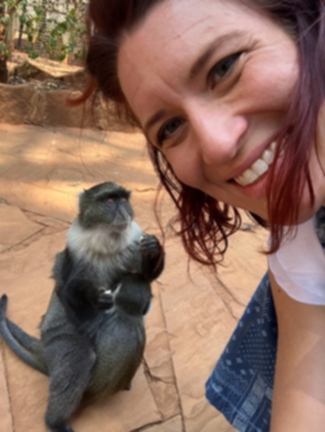
This monkey paid no attention to the fenced perimeter.
Sharing this rich and beautiful ecosystem are 56 million human residents. Most Kenyans are trilingual: Swahili is the lingua franca of day-to-day interactions. English is the language of education, business, and of course, tourism. Finally, most people maintain a connection with their tribal tongue: the one they use when their buzzing phone reads: “Mum.”
Sixty percent of the inhabitants, some 2.5 million people, in the Capital city of Nairobi live in one of the many vast slums that criss-cross the city, including Kibera, the largest urban slum on the continent. For these millions of people, the family home is a single small room with a shower curtain instead of a door.

This is a slum row house - set back from the main drag, it has a small yard and garden, making it relatively nice for the area.
In this country of more than 50 million people, only 3 million are employed in the formal sector. Anyone else working is finding that work in the “informal” sector – put in quotes because it’s not really a sector at all. Only 5% of adults in Kenya have a credit card and only 16% own their home - figures which are startlingly low compared to the more developed world. This stark difference is in part due to interest rates so high that it makes little sense to finance an investment in home ownership. Business loans are similarly scarce. These financial tools allow people in the developed world to take measured risks, own property, bring business ideas to life, and participate in vibrant economies.
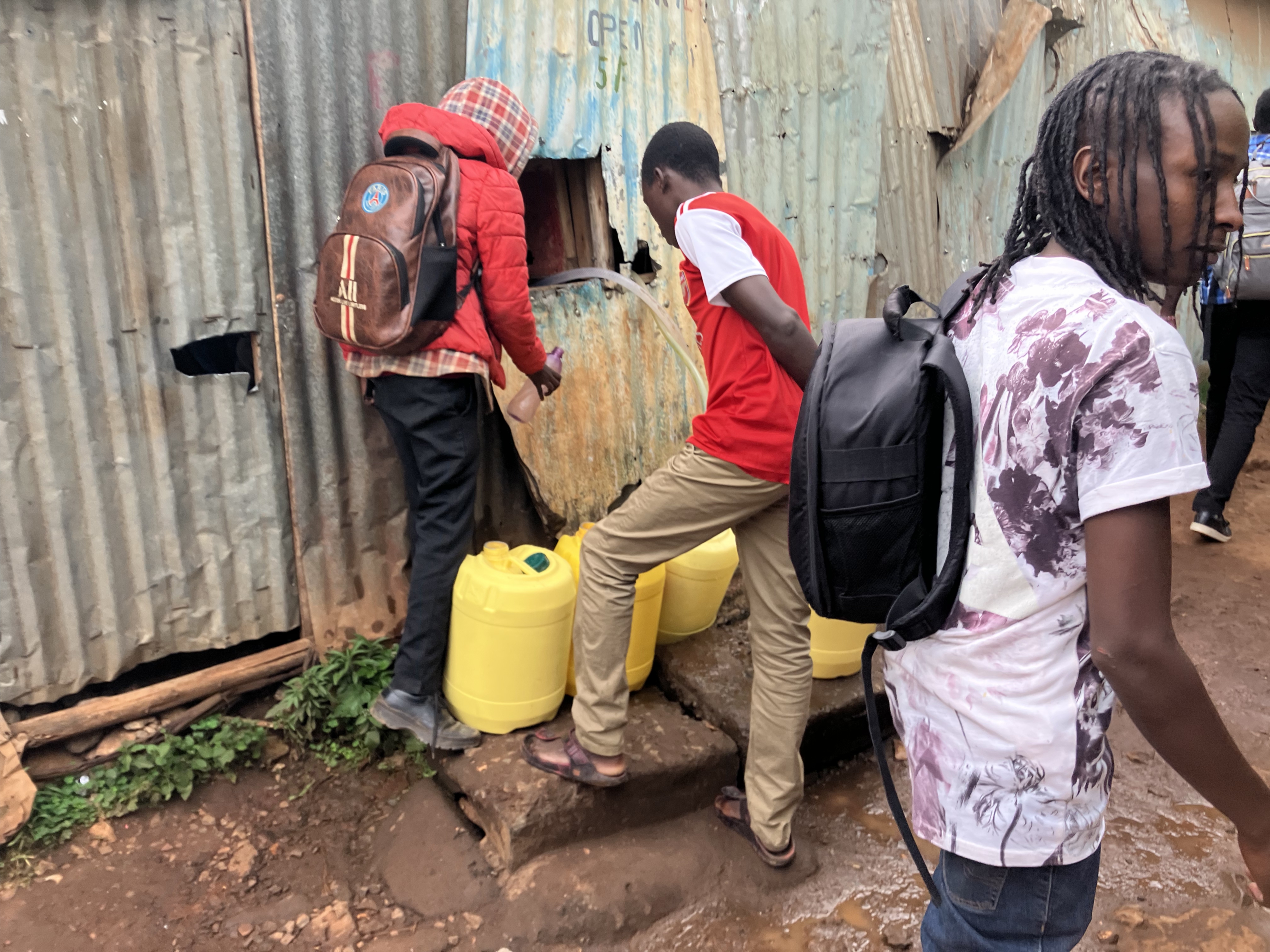
One job in the “informal sector”: selling water through a hole in the wall.
Due to many historical, economic, and geopolitical factors, these tools never really landed in Africa. Instead, newer digital tools are now becoming commonplace. 96% of Kenyan households use M-Pesa, a digital payment system similar to PayPal or Venmo but does not require users to have a bank account (and many do not). Locals can use M-Pesa to purchase anything from a restaurant dinner to a banana from a roadside stand. Now, at the dawn of “Web 3,” there is reason to think that many Africans may skip over 100 years of TradFi , and instead take the vanguard of new digital and decentralized financial technologies.
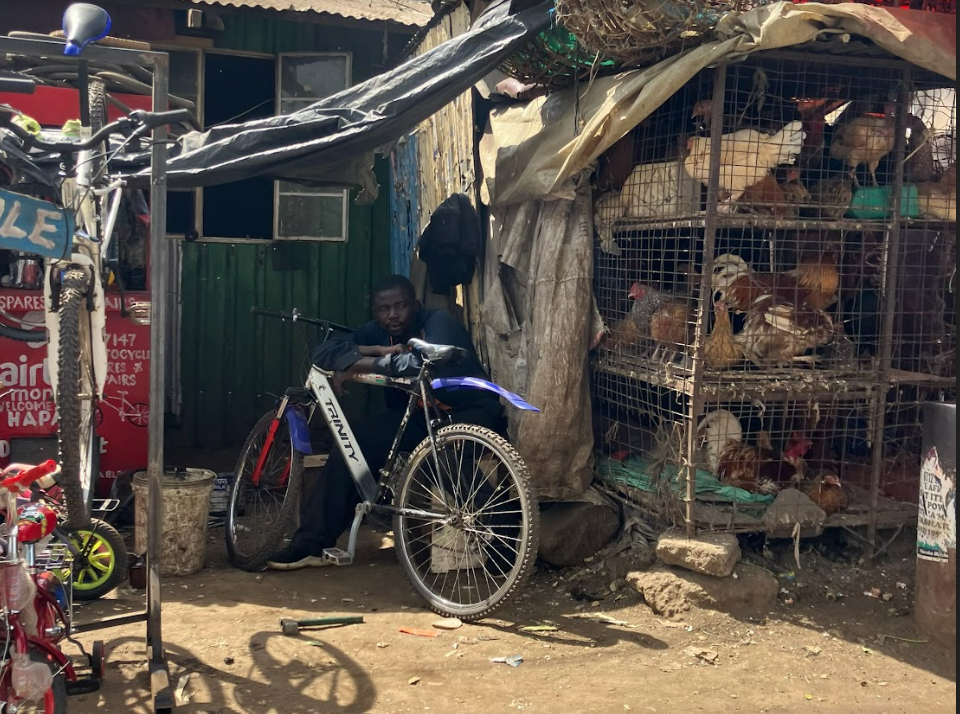
Need a chicken? This man will happily provide his M-Pesa ID to facilitate a digital transaction!
That is certainly what it felt like when I paid a visit to Nairobi, Kenya, last month. Many blockchain networks are looking at places like Kenya with particular interest when thinking about real-world applications and impact. Cardano’s Project Catalyst has maintained the “Grow Africa Grow Cardano” funding campaign throughout numerous funding rounds. During a 10-day visit to Nairobi, I connected with several projects that are looking to land and expand in a country that is nothing if not full of potential.
Ngong Road Blockchain Lab
In Fund 7 of Project Catalyst, Lido Nation was funded in the “Scale Up Community Hubs” challenge to establish a Cardano Lab in Kenya. The lab was built using an old shipping container, giving it some character. A portion of the funding budget provided powerful computers, power, and good internet for lab participants. While the cost of basic living in Kenya is low, these modern utilities are extremely costly, so solving these access issues is key for the growth of blockchain projects in the area.
As for the actual “Cardano Lab” activities, these fall into three categories:
- Translation: A team of translators has been at work for almost a year, translating Cardano blockchain content into Swahili. Most of this has been Lido Nation content, but the team has had some opportunities to do translation for other projects. In the near future, we are speaking to Gero Wallet about the potential to translate their Cardano wallet into Swahili. It is meaningful to note that translation work in the blockchain space is unique and specialized. There are many concepts and terms that are so new that they simply do not naturally exist in many world languages yet. The team engaged in months of groundwork to learn about these vocabulary words and, indeed, to understand the whole ecosystem so that their translations would really communicate the original intent of the documents they worked on. Having specialized in blockchain translation for nearly a year now, the team is now a preeminent resource for Swahili blockchain translation!
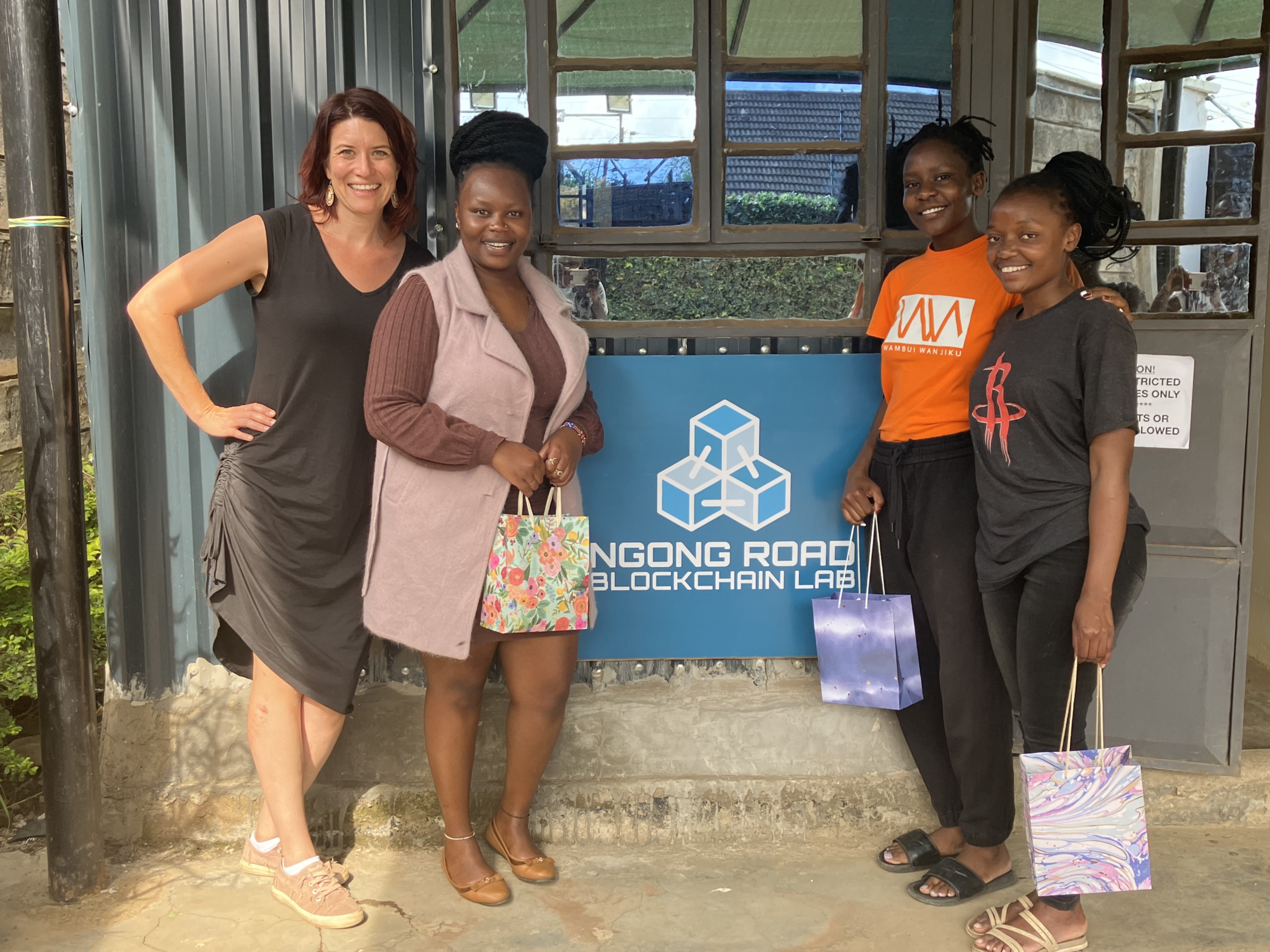
Outside the blockchain lab with the translation team.
How you can participate: If you have or know of a project that would benefit by being made more accessible to millions of people in Africa through Swahili translation, get in touch! [email protected]
- Community Outreach: Having a physical presence in the heart of Nairobi allows lab participants a unique opportunity to spread knowledge about Cardano through real-life interaction and community. Project Catalyst Proposal Assessor Training is one of the most successful community initiatives so far. Three lab participants were led through training and working as a PA in Fund 9. Then in September, they trained six more interested individuals for participation in Fund 10. For people in this part of the world, finding ways to earn money is more to the point than any hypotheticals about investing in crypto. The opportunities afforded by Project Catalyst for anyone to participate, and earn Ada if they are willing to work, is a critical differentiator that paves the way for global adoption of the technology.
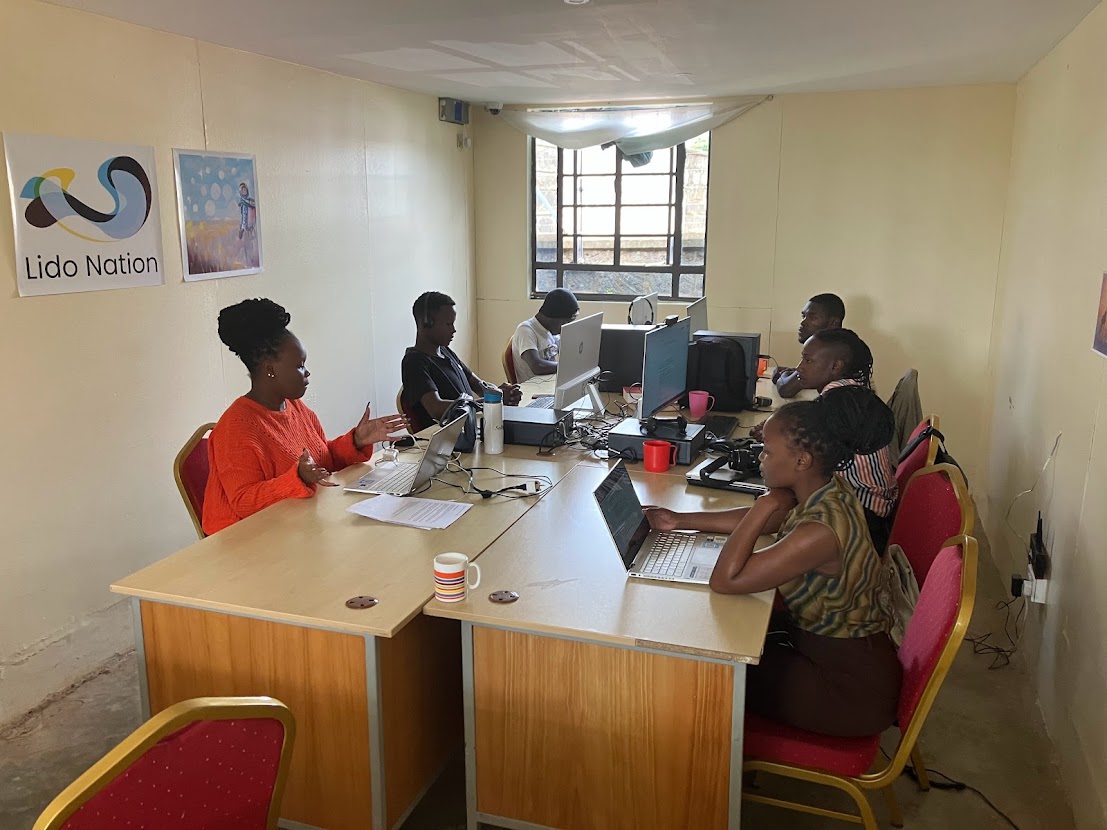
Proposal Assessor training session
How you can participate: Follow the lab on Twitter @NgongRoadLab. Check out our FREE Proposal Assessor Training Curriculum at Blockchain Learning Center.
- Developer Mentorship: Over the course of the lab’s first year, numerous young college grads have participated in a Developer Mentorship program. Finding a good structure for the program has been our first objective. The first transformative improvement is that there is now a clear path that leads mentees from the beginning to the end of the six month mentorship engagement. In the first months, they learn independently and participate in pair-programming while earning a stipend. In months 3-6, the program’s remuneration becomes project-based; mentees are assigned development “tickets” and expected to work independently and as a team to deliver results. Although this program is still in its infancy, we have seen its participants gain access to new jobs and opportunities in the space - an encouraging sign of success.
How you can participate: We are actively seeking partnerships and resources to bolster the training experience for developer mentees. While mentees are only accepted into the program after demonstrating adequate education and proficiency in some dev basics, there is still a steep hill to climb for young devs who want to grow in the space. If you have ideas or resources to recommend, send them our way! [email protected]
Local Partner: Ngong Road Children’s Foundation
Ngong Road Children’s Foundation (NRCF) is a Kenyan NGO whose work spans more than a decade. Through the generosity of sponsors and donors from around the world, bright students from Nairobi’s poorest slums gain access to education. With it, these students can access a college education, good jobs, and a path to a better life for themselves and their families. Without this support, there are few practical paths out of the slum.
A visit to one school elicited an impromptu assembly, where students performed with song and spoken word.
While visiting Nairobi, I got to visit their newest facility, Elimu Hub. This building, also fashioned from shipping containers, provides an inviting library, study space, and a computer lab, for sponsored students in the program.
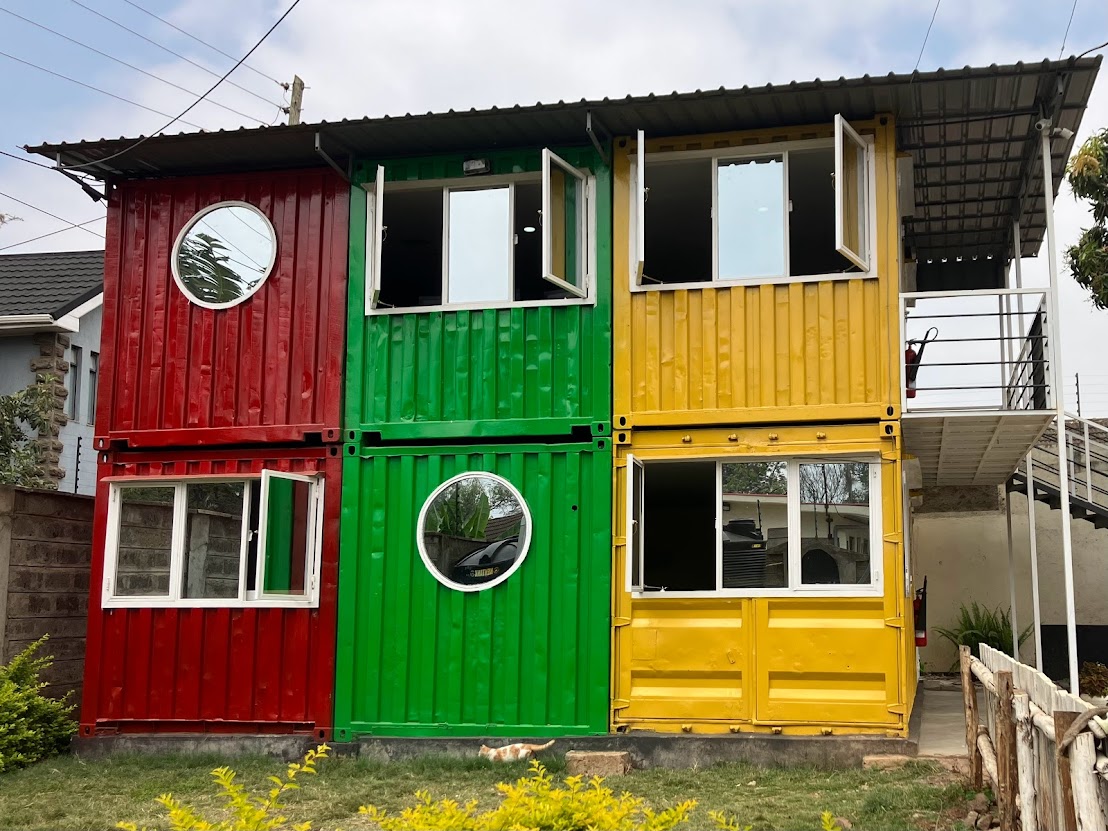
Elimu Hub
For students who use this space, it is likely the only place in their life with that much clean space, technology resources, books, and study materials – not to mention relative quiet and safety.
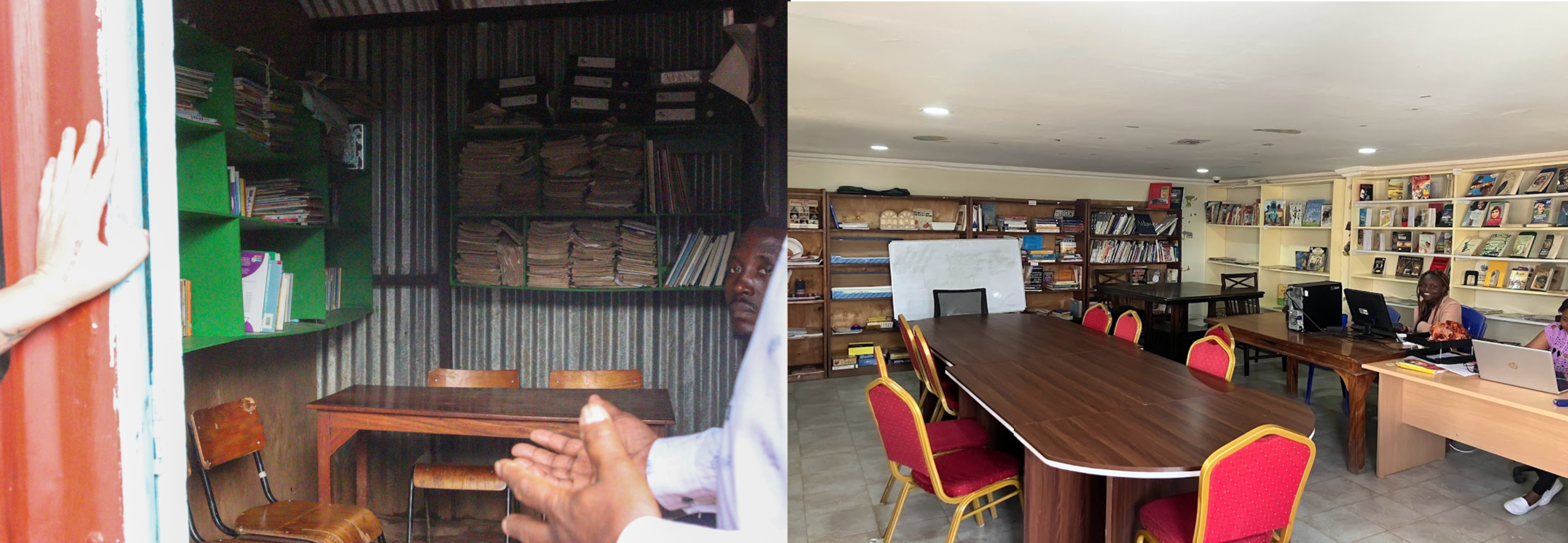
The “library” at a school in the slum - There is only room for one or two people to step inside, and the small selection of old books brings a pang to any bibliophile. By contrast, the Elimu Hub library is large, sunny, and well-stocked, with suitable books for children of all ages.
While NRCF is not a blockchain project, they have been a key partner for Lido Nation to be able to make the progress and impact we have had so far in Kenya. Some of their graduates have been our translators, community officers, and developer mentees. Their partnership has been instrumental in the establishment and success of the Cardano blockchain lab. Seeing this firsthand was a reminder that as we seek to build tomorrow’s world, we should not dismiss the good things in today’s world.
By partnering with traditional institutions that might share elements of our vision, our progress and impact are magnified.
How you can participate: You can directly support the work of NRCF by donating or sponsoring a child.
You can also support them through Lido Nation’s unique “purpose-driven pool” model, whereby half of our pool income is redistributed to our delegators as Phuffy coin. Phuffy coin is a voting token with real monetary value that allows you to tell us where to donate our charitable ada. NRCF is on the ballot for the first round of giving, so when you stake with LIDO and earn Phuffy coin, you will have a chance to vote and tell us to donate to them! Learn more about Phuffy coin here.
To Be Continued
In this article, we landed in one corner of the African continent and took a look around. We saw some of the people living and working there. We had some “aha!” moments about why leaders and visionaries in Cardano have pointed to Africa as a place where the technology should seek to set down roots. Finally, we saw how some of the seeds planted by Project Catalyst funding are sprouting and growing with successful projects of various kinds.
But this is just the beginning. Next week we will turn our attention to newer projects and ideas that are coming through Project Catalyst - and some that haven’t even made it there yet.


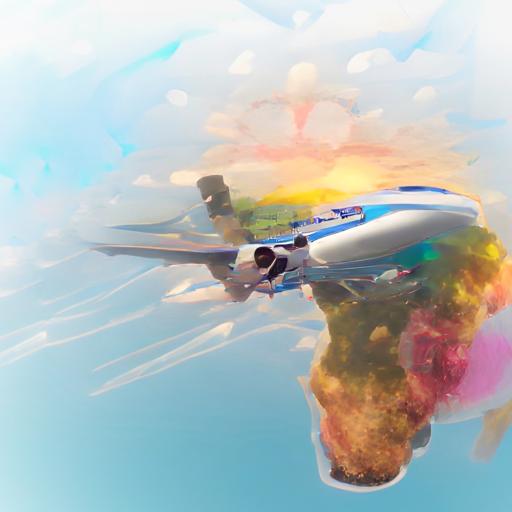
No comments yet…